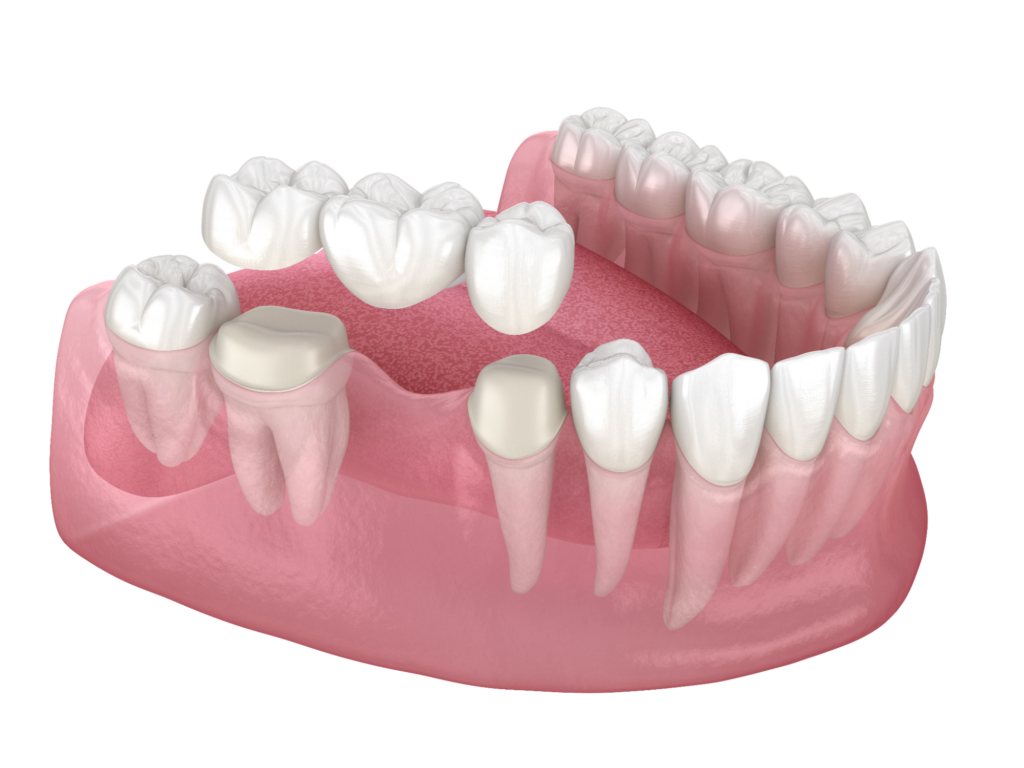Are you tired of hiding your smile due to unsightly gaps caused by tooth loss? These gaps may noy only impact your appearance but also your overall well-being. Beyond the obvious aesthetic concerns, smile gaps can lead to various oral health issues, affecting quality of life. When a tooth is lost, neighbouring teeth may shift, resulting in misalignment and difficulties with biting, chewing, and speaking properly. Moreover, the loss of a tooth root can trigger bone deterioration in the jaw, further compromising your oral health. Fortunately, there’s a remarkable solution that can help you regain a beautiful smile and the self-assurance that accompanies it – dental implants.
In modern dentistry, dental implants have emerged as a transformative solution for individuals grappling with tooth loss and its associated challenges. From elevating your smile’s radiance to safeguarding jawbone health and empowering you to savour your favourite foods without hesitation, dental implants possess the potential to redefine your post-tooth-loss experience. Join us as we begin a journey to unveil the science, artistry, and transformative power of dental implants in the modern world of dentistry.
Understanding Dental Implants
Dental implants are artificial tooth roots made from biocompatible materials, typically titanium, that are surgically placed into the jawbone to provide a strong foundation for replacement teeth. These replacement teeth can be in the form of crowns, bridges, or dentures, and they are securely attached to the implants, creating a stable and natural-looking solution for individuals with missing teeth.
Here are the key components of dental implants:
Implant Fixture
The implant fixture is the portion that is surgically inserted into the jawbone. It resembles a small screw or post and serves as a replacement for the natural tooth root. It fuses with the bone over time through a process called osseointegration, which provides stability and support.
Abutment
The abutment is a connector piece that attaches to the implant fixture after osseointegration is complete. It protrudes above the gum line and serves as the attachment point for the replacement tooth or teeth.
Replacement Teeth
Dental implants can support various types of replacement teeth, including single crowns for individual tooth replacement, implant-supported bridges for multiple adjacent missing teeth, or implant-supported dentures for full arch or multiple teeth replacement.
The Dental Implant Procedure: Step-by-Step Guide
The procedure for getting a dental implant typically involves several stages and may vary slightly depending on the individual case. Here’s an overview of the typical steps involved in the dental implant process:
Initial Consultation and Evaluation
Your dentist will conduct a thorough examination of your oral health. This includes X-rays, dental impressions, and possibly a CT scan to assess bone density and structure. You will discuss your medical history and any medications you’re taking to ensure you’re a suitable candidate for dental implants.
Treatment Plan
Based on the evaluation results, your dentist will create a customised treatment plan. This plan outlines the number of implants needed, the type of restoration (e.g., crown, bridge, denture), and the timeline for the procedure.
Tooth Extraction (If Necessary)
If there are damaged or decayed teeth at the implant site, they may need to be extracted before the implant surgery.
Implant Placement
- The implant surgery is typically performed under local anaesthesia, sedation, or general anaesthesia, depending on the complexity of the case and patient preference.
- Your dentist will make an incision in the gum to expose the jawbone and then create a small hole for the implant fixture.
- The implant fixture, often resembling a small screw or post, is carefully placed into the jawbone. The implant must be precisely positioned for lasting results.
- The incision is closed with stitches, which may be traditional or dissolvable.
Healing Time
After implant placement, a period of healing is necessary, usually lasting several months. During this time, osseointegration occurs, which is the process where the implant fuses with the surrounding bone. You’ll be provided with temporary restorations if needed to maintain appearance and function during the healing phase.
Abutment Placement
Once osseointegration is complete, a small connector piece called an abutment is attached to the implant. This abutment protrudes above the gum line and will serve as the attachment point for the final restoration.
Impressions and Restoration Design
Your dentist will take impressions of your mouth to create the final restoration, whether it’s a crown, bridge, or denture. The restoration is custom-made to match the colour, shape, and size of your natural teeth.
Final Restoration Placement
The completed restoration is securely attached to the abutment, creating a functional, durable and aesthetically pleasing replacement for the missing tooth or teeth.
Post-Operative Care and Follow-Up
Your dentist will provide you with instructions on post-operative care, including oral hygiene practices and dietary restrictions. You’ll have follow-up appointments to monitor the healing process and ensure the implant is functioning correctly.
The entire dental implant procedure can take several months to complete, with most of the time dedicated to the healing and osseointegration phase. While it may seem lengthy, dental implants offer a long-lasting and durable solution for tooth replacement. It’s essential to work closely with your dentist throughout the process to ensure the best possible outcome.
At Dental Family Beaumaris, we offer a range of teeth replacement options such as dental implants , crowns, bridges and dentures. During our initial consultation, we perform a comprehensive evaluation which allows us to assess your dental health and understand your aesthetic and long term needs to recommend the right solution for you. Whether you’re looking to replace a single tooth, multiple teeth, or require teeth restoration procedures such as dental bonding, our gentle dentists are here to help you achieve a brighter, more functional smile.
Benefits of Dental Implant
Dental implants offer several advantages over traditional tooth replacement options like removable dentures or fixed bridges. They include:
Improving Life Quality
Dental implants enhance your overall well-being by restoring your ability to eat, speak, and smile with comfort. They eliminate the discomfort and inconvenience of missing teeth, allowing you to enjoy life to the fullest.
Restores Bite Force
Dental implants provide a strong and stable foundation for your replacement teeth. This restoration of bite force enables you to eat a wide variety of foods without limitations, including those that are tough or crunchy. However, it’s advisable to practise moderation and caution with sticky and crunchy foods, both with your natural teeth and dental restorations.
Enhanced Functionality
With dental implants, you can speak and chew naturally, just as you would with your natural teeth. This helps you avoid speech difficulties and ensures comfortable and efficient chewing.
Preserves Facial Structure
Missing teeth can lead to facial sagging and an aged appearance. Dental implants help maintain the natural contours of your face, ensuring a more youthful and aesthetically pleasing look.
Keeps Adjacent Teeth Stable
Unlike some traditional dental treatments, dental implants do not require the alteration or support of adjacent teeth. This helps maintain the integrity and stability of your remaining natural teeth.
Natural Look and Feel
Dental implants closely mimic the appearance and function of natural teeth. They blend seamlessly with your smile, both in terms of aesthetics and how they feel in your mouth.
Prevent Bone Loss
Dental implants stimulate the jawbone, preventing the bone loss that typically occurs after tooth loss. This preserves the strength and structure of your jaw, supporting long-term oral health.
Durability
Dental implants are known for their longevity. With proper care and maintenance, they can last for many years, often a lifetime, making them a durable and cost-effective solution for tooth replacement.
Who’s a good fit for dental implants?
Dental implants are a versatile solution for people with missing teeth. Here are certain factors to consider in to determine your if you are a suitable candidate for dental implants:
Bone Density: Adequate bone in the jaw is essential to support the implant. If there is insufficient bone, bone grafting may be necessary before implant placement. It involves adding bone material to promote bone density which is essential to support a dental implant.
General Health: Patients with systemic conditions and gum diseases may not be eligible for dental implants as a weakened immune system can affect the healing process.
Smoking and Tobacco Use: Smoking and tobacco use can hinder the healing process and increase the risk of implant failure. Patients are often encouraged to quit smoking before undergoing implant surgery.
Realistic Expectations: Patients should have realistic expectations about the procedure and the time it takes for the complete implant process to be successful. Dental implants require a commitment to undergo the process responsibly, following your dentist’s instructions for successful treatment outcomes.
Oral Hygiene: Good oral hygiene practices are necessary to maintain the health of dental implants, your natural teeth and any other dental restorations. Patients should be committed to regular brushing, flossing, and routine dental check-ups to help maintain and protect their dental implant and oral health.
Missing One or More Teeth: Dental implants can replace a single tooth or multiple teeth or even provide support for a full arch of teeth in the form of implant-supported dentures.
It’s essential to consult with your dentist for a thorough evaluation to determine whether you are a suitable candidate for dental implants. They will consider your specific oral health, medical history, and individual circumstances to help you make an informed decision about your tooth replacement options.
Transform Your Smile with Dental Implants
Dental implants offer an ideal solution for people looking to replace one or more missing teeth. They provide a natural looking and fixed teeth replacement which allows you to regain your smile’s aesthetics and functionality, giving you the freedom to smile with joy. At The Dental Family Beaumaris, we aim to provide targeted treatments tailored to your unique dental, aesthetic and lifestyle needs for improved oral health and a smile that exudes radiance. Talk to our dentists to learn more about dental implants today.

